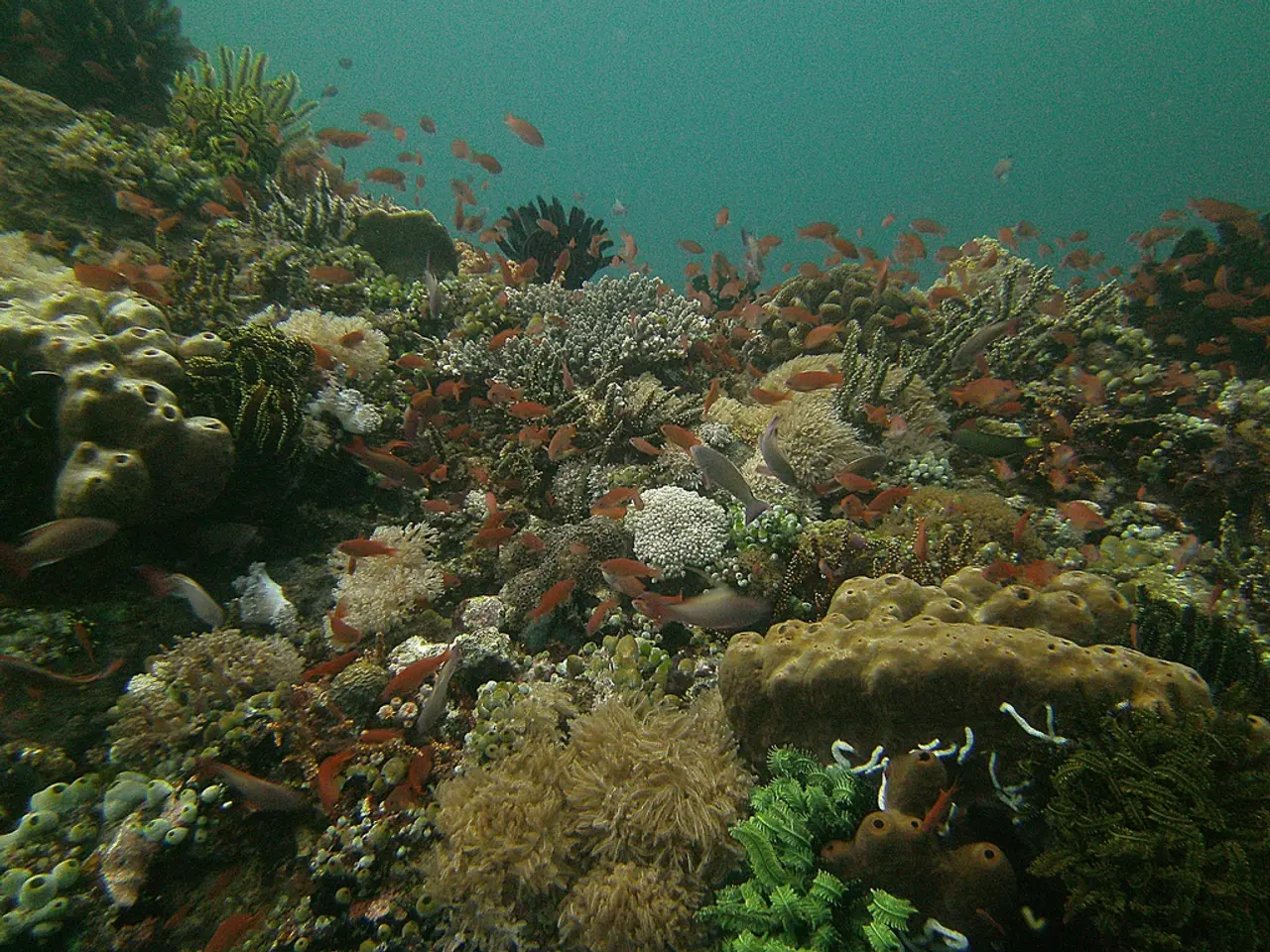Delve into the Waves: Exploring Deep Listening's Role in Guarding Marine Life
In the vibrant coastal town of Cancún, Mexico, a unique conservation movement is taking shape. Ocean World of Sound (WOS), a global, transdisciplinary organisation, is harnessing the power of sound to monitor and protect the health of coral reefs.
The idea for this innovative approach was born from Heather Spence, a marine biology student, during a holiday in Cancún. Inspired by her lifelong connection to music and her understanding of the world through rhythm and tone, Heather sought solutions for managing marine resources and assessing anthropogenic impacts on coral reefs.
WOS uses a technique called Passive Acoustic Monitoring (PAM), which involves placing underwater microphones (hydrophones) to record natural sounds produced in the ocean, such as those from coral, fish, and marine mammals. By studying these sounds, WOS can assess the health of marine ecosystems, detect changes, and monitor biodiversity without disturbing the environment.
The more one listens to underwater soundscapes, the more patterns and behaviours of marine ecosystems become apparent. Insights from PAM recordings guide reef protection and marine conservation efforts by revealing patterns in reef activity, stress, or degradation. This approach leverages bioacoustics, connecting sound analysis with ecological information critical to sustaining ocean habitats.
Ocean World of Sound is focused on community-driven conservation, working with local Marine Protected Areas, schools, artists, and cultural leaders. It combines science, art, and community through interactive workshops, educational challenges, art installations, and citizen science projects.
One of the key collaborations is with the University of Cádiz (INMAR) on a citizen science project using sound data to train machine learning models to detect marine mammal whistles. WOS has also initiated a pilot project assessing coral restoration efforts using PAM in the Maldives.
The Mesoamerican Reef, the second-largest barrier reef system in the world, is under-researched and vulnerable despite supporting the livelihoods of millions. WOS runs programs in both Spanish and English and is building a replicable model for other coastal communities, particularly in developing nations.
Since 2021, WOS has organized 31 events, reaching over 1,700 people. It is an official Ocean Decade campaign focused on youth and citizen science opportunities for ocean conservation, addressing three Ocean Decade Challenges: 4 - Developing a sustainable, resilient, and equitable ocean economy, 7 - Sustainably expanding the Global Ocean Observing System, and 9 - Skills, knowledge, technology, and participation for all.
In Cancún, WOS has created a citizen science group with participants from Mexico and Paris. Dr. Jaime González Cano, the director of the local Marine Protected Area (CONANP) in Cancún, shared with Heather the challenges faced by coastal communities in terms of minimal funding for monitoring and management of marine ecosystems. This collaboration aims to empower local communities to protect their ocean resources and foster a sustainable future for all.
[1] Ocean World of Sound. (n.d.). About Us. Retrieved from https://oceanworldofsound.org/about-us/ [2] Ocean World of Sound. (n.d.). Our Work. Retrieved from https://oceanworldofsound.org/our-work/
- In the realm of environmental science, Ocean World of Sound (WOS) employs data and cloud computing in their approach to monitor and protect the health of coral reefs, bridging the gap between technology and sustainable living.
- Heather Spence, a student of marine biology, saw an opportunity to leverage her lifelong connection to music, lifestyle, and education for assessing anthropogenic impacts on coral reefs, in her pursuit of lifelong learning.
- To expand their efforts, WOS collaborates with institutions like the University of Cádiz (INMAR) to use machine learning models for detecting marine mammal whistles, thereby integrating the principles of learning and self-development into their mission.
- WOS's unique conservation movement recognizes the importance of a collaborative approach, partnering with local Marine Protected Areas, schools, artists, and cultural leaders, advocating for a home-and-garden mentality, where every community becomes a proactive steward for the environment.
- As a transdisciplinary organization, WOS's initiatives in Cancún are helping to provide solutions for managing marine resources and promoting a more harmonious relationship between humans and the ocean, ultimately contributing to the development of a sustainable, resilient, and equitable ocean economy.




